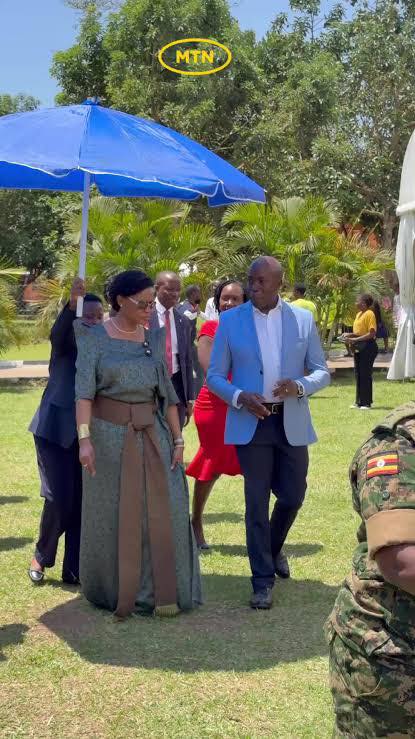By Denis Jjuuko
One day, a youthful John met Joan and they kicked off a romantic relationship that was the envy of the community. They didn’t care who was watching. If it meant feeding each other, they did. If walking while holding hands was their way of showing affection, they did regardless of living in a conservative community.
It wasn’t many months later that Joan informed the love of her life that she was expecting. They were excited and looked forward to the birth of their child. Both John and Joan (not real names) informed their parents, relatives, friends and whoever cared to listen about the pregnancy.
Nine months run fast if you are happy about the pregnancy. Soon, the couple was running to the healthy facility so Joan could be delivered of the baby. The process was smooth and they were soon home to raise the baby. They did everything under the sun to provide for the baby. They were a happy family.
As the child continued to grow, they realized that there was something unusual. They visited a few relatives and doctors. They were soon to learn that their beloved son had lost his hearing ability. The happiness they had enjoyed turned into nightmares.
John started accusing Joan of possessing bad luck informing her that in his family they don’t give birth to deaf children. Joan counter argued that she too doesn’t have any deaf people in her family. John started distancing himself from Joan and the child. He was heard telling friends that he wasn’t the father of the child. He started spending nights away from home and eventually disappeared.
Joan, a young girl, saw this as a big burden and after few years decided that she could not raise the child alone. She too needed to live her life. She boarded the taxi to the village to meet John’s widowered mother. She told the mother-in-law that since John had disappeared and she too needed to survive and find another man, she is leaving the son in her care.
John’s mother was puzzled but understood Joan’s predicament and promised to raise the child, like she had done with other grandchildren.
This isn’t a unique case for John and Joan. It is, many times, the norm with parents abandoning children with special needs. If they don’t abandon them with their aging grandparents, they drop them at orphanages. Some even kill them!
Similar stories were shared over the weekend when we gathered in the expansive well-manicured lawns of Masaka School for the Deaf as they celebrated their 20th anniversary. Nnaabagereka Sylvia Nagginda was the guest of honor.
The school is the result of the benevolence of my friend Francis Kamulegeya, a well-known former corporate executive who has since traded the designer footwear for gumboots to look after the venerable.
One day, Kamulegeya was in Masaka town and stopped by a hardware shop to buy materials to renovate his mother’s house.
Somebody he couldn’t recognize excitedly approached him. He thought he was the usual beggar and the hardware shop had unsuccessfully tried to send him away. He wanted to tell Kamulegeya something but he was only gesturing. Kamulegeya realized the man was deaf and the hardware shop attendants pointed to a bench across the street where this man worked as a cobbler.
He walked with him across to his work station in a bid to find an interpreter so he could understand what the man was telling him. They did find a lady who interpreted the message. The man was Moses Kirangwa (now deceased) who was Kamulegeya’s childhood friend in Kimaanya village, a suburb in Masaka. Kamulegeya now recognized him.
They had not met in decades and talked about the lives they were living. Kirangwa told Kamulegeya that the only difference between them is that Kamulegeya had received formal education at the highest level. It struck a chord leading to the birth of Masaka School for the Deaf.
It is remarkable what Kamulegeya has done with the school using personal resources to provide a topnotch school for the deaf. Thousands have passed through his hands and many were at hand to give testimony to how education has changed their lives.
The school located in Ndegeya on the outskirts of Masaka city has led to the birth of a much wider project with fish ponds and a coffee farm. Proceeds from the farm support the school, creating many jobs and changing the livelihoods of people in Ndegeya. He adds value to coffee and sells to companies to give away as corporate gifts.
Imagine if he was supported to create an out-grower model where the entire community supplies him coffee and increased his production capacity? The whole community would get better prices. Before that, you could sponsor some of the deaf children who have no parents or guardians. It costs only Shs1,080,000 in annual tuition fees.
The writer is a communication and visibility consultant. djjuuko@gmail.com










